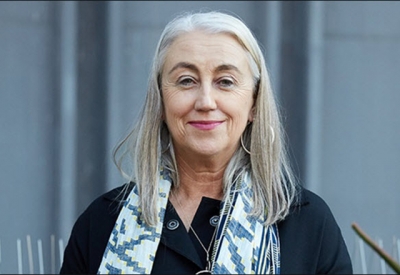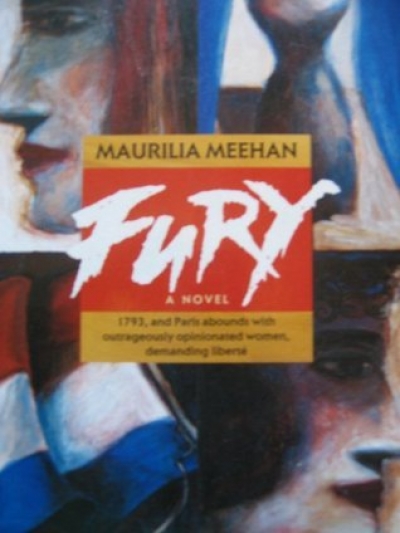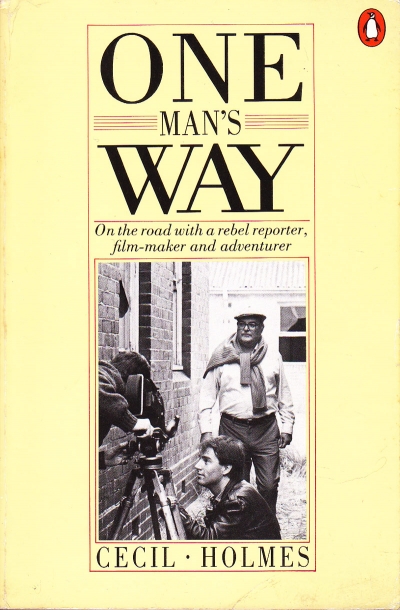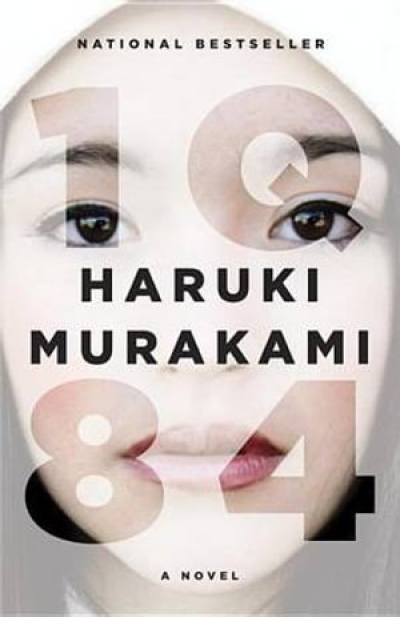Before the ceremony began, the woman with hairy legs and an air of having just abandoned a cigarette wandered as though at a party to the coffin where – though it was impossible and not so – Clelia’s mother, Margaret, was. Three days ago, four days ago, Clelia had said to her mother, ‘Come and see the blossom I’ve brought back.’ She had just returned to Sydney after a three-week absence in the mountains.
‘Can’t it come to me?’
‘No,’ she said gaily, insistently, not thinking really, never wondering. ‘No, you’ll have to come out here. It’s so tall. I can’t move the vase.’
So her mother left her chair in Clelia’s sitting room and walked through to the kitchen, where the bower of japonica and peach and pear blossom was.
After the two-hour weekly visit permitted by Theo they said goodbye beside the car in the black soft night.
‘I’ll hear from you before you go away next week?’ her mother asked, knowing, saying nothing.
‘Of course. Naturally.’
‘I do feel old tonight,’ her mother said, knowing.
‘No.’ She smiled and hugged her. ‘No, you’re not.’
Uneasy, affronted, the minister approached her and leaned down, referring to the woman with the hairy legs now swaying past the coffin, reading the cards on the sweet spring flowers. ‘Who is that?’
‘No one,’ Clelia said. In truth she was a stranger, heard of, but met now for the first time, wife of one of Theo’s associates.
Over. Outside on swept gravel. Over, over. A young man spoke to her and wiped his eyes. Others spoke. Clelia and Stephanie, her mother’s cousin, walked towards the car. Another friend said, ‘I must get home to my family.’ Some you might have counted on were afraid of catching death.
‘Of course.’
So Clelia drove with Stephanie to the house where her mother had lived, almost from the time she was girl. She had remained a girl for a long time, which is only to say that she kept a sort of innocence and trust, and resisted knowing what she knew. It was the measure of her strength, so gentle-seeming, that, when she did face what she knew, her nature was unchanged. That is, she lacked all inclination to wound and was not bitter. She had made a grievous mistake, beyond repairing. She accepted this, but failed to become a worse person. That had been Theo’s aim, to reduce her as a human being, to make her over in his image.
Clelia thought of her stepfather, Theo. He was a great figure in his own imagination. Theo … ‘From the Greek,’ he used to say, and laugh. Clelia had not seen him for ten years till today, had never been back to the house. It had been safest for her mother, who had become, anyway, too ill, too worn, to leave him, that he should never see mother and daughter together. He was jealous. Her mother could have no friends, no relations, no pets, nothing but Theo. He got easily jealous if he was not ever and ever attended to first and only. So he always was.
And perhaps there was some justification for his jealousy. Clelia had never known how to describe him to any new acquaintance, lover, asking about her life. What was there to say? She could only move her body, turn her head, breathe in, aware of seeming evasive. There was too much; it was too stark: it would take too long. No one wanted sad stories. Theo had been a tyrant, terrifying in her childhood and girlhood, a man who tortured and smiled and, after her escape, continued in this role in her mother’s life. It sounded excessive, unbelievable, so she said nothing.
She had no idea what he could have seemed to himself, but he could be seen to act and calculate. He had noticed his exceptional power to cause unhappiness and fear. He had also noticed, certainly, his power over Clelia’s mother, and drawn conclusions flattering to his vanity. Those simple others out there in the world, occasionally encountered even in his domain, smiled and performed tiny deeds inspired by compassion or affection, their eyes watchfully on him. But he, Theo, going his own way, got his own way. Others tried to please, but he won.
Before the service she had met him face to face, the leading actor once of all her nightmares. His face was crumpled. He cried. Long ago Clelia had streamed with tears for her mother’s life; there had been streams and years of tears. But now it felt true – what poets said: hearts turned to stone. There was no further harm Theo could do. He had done his worst. The crimes had been committed.
Two neighbours had driven him back to her mother’s house after the funeral. They were there with him when Clelia arrived. Thoughtfully, one of the neighbours had baked cakes and biscuits, and made tea and set it out. They all held cups and looked into them.
Theo sat blowing his nose. ‘I can’t believe it,’ he said, choking.
Even to Clelia it seemed possible that everything could yet be reversed. Since it was all so sudden and recent, with every least incident so clear, with cause and effect so clear, the hideous wrongness with which everything had happened seemed to shout in the room, demanding instant action, instant reversals.
‘Now, Theo ...’ The neighbours watched him because he was dangerous. ‘We’ve put some dinner in the oven for you.’
‘I’ll come back tomorrow,’ Clelia said. ‘We’ll talk about things then. The doctor will call in this evening to see you.’ She rose and one of the neighbours, a widow, went with them to the door.
‘He’s a cruel man,’ she told Clelia, sparing her nothing. ‘He made your mother cry. Even when she was ill, he’d go on and on, driving her to do everything exactly as he ordered. The cruellest man I ever knew.’
Clelia listened with no expression. Who could tell her about Theo?
In her flat the telephone rang and rang. When somebody dies suddenly the lives of survivors explode; hours are minutely cluttered. The telephone rang.
‘Oh, Sam. My mother’s died. Suddenly. No, I can’t see you. No, don’t come over. The telephone keeps ringing. No, I don’t want any dinner. No, I’m not alone. Steph’s staying for a while. She’s brought some work.’
She told Stephanie, ‘Sam’s coming over. He wants me to go to dinner.’
In most intricate detail, in case he should know the magic that would reverse all, she told Sam with passionate fluency of the accidents, delays, absences, mismanagement, leading to her mother’s death.
Sam understood it all, looking at her carefully. He told her, ‘I’m taking you out for a meal.’
‘I’m not hungry.’
‘Eat anyway.’
The suburban shopping centre that she had passed a thousand times – milk bar, delicatessen, wine bar. All there exactly as they had been on Friday when she brought the blossom down from the mountains, and insisted ...
‘What’s going to happen to him?’ Sam wanted to get it clear.
‘He has a family in England, from another marriage. He visited them. He didn’t ruin their lives. Their mother left him when they were almost babies. It’s their turn now. But it’s too late. He can’t do anything else to my mother now. He actually asked if I would like to go and live with him and look after him. I could have anything, if I would.’
‘You’re not going?’ He looked incredulous.
‘Oh, Sam ... But till arrangements are made, I’ll go down and make his dinner and fix the laundry. Steph will come with me. I couldn’t go alone.’
Sam stopped and grabbed her arm. In the window of a gift shop a frilly red lamp was meaninglessly shining. ‘You’re not going to do his washing?’
‘I was going to put it into the machine.’ She was vague.
‘No, you’re not. Send it to a laundry.’ Sam was outraged somehow. ‘Now I’m serious. Promise you will.’
‘Oh ... All right.’ She was unused to being told what to do, but if it mattered to anyone about Theo’s washing she would certainly send it to the laundry.
At the small unlicensed French restaurant up the street, where retired couples, isolated persons, regularly ate, Clelia sat with Sam. He told her what she should eat and ordered it. He then settled down to the history of the Russian Revolution. Clelia had so much to think about. She knew so little about the revolution, and he knew so much. Why now did he feel it vital to pass all this news on to her? Most of her life she’d thought, since no one else was like Theo, everyone was delicate, full of sensibility. Now she knew this to be wildly untrue. But some people really were, and Sam – so large, so towering – was towards her, indeed, exceedingly considerate. Therefore, although it was like having a steel rake dragged through her mind, with her whole nature turned to the undoing of mistakes, the return to Friday and restoration of her mother to life, she responded distractedly to Sam’s talk of revolution, great waves of history battering her head, centuries rushing past.
Late every day she and Stephanie went down the steps to her mother’s house. Everything was unreal – cement steps, sky, absent presence, new ingratiating Theo. Perhaps he, too, thought her mother might return. He was deeply unwilling to leave the country and go to his vaunted sons and daughters, but agreed when he had no choice, he who had granted no choices.
That first evening of the dinner ritual he greeted them with extraordinary smiles and then, looking about in case they might be overheard, so that Stephanie and Clelia, too, glanced over their shoulders, he led them inside. ‘This way, this way.’
Darting ahead, then rushing back, he led them through the sunroom, through his small study, through the kitchen, through the square hall, into her mother’s bedroom. There he stood, bright-eyed, expectant, full of secrets.
Still the women stood. ‘Wait, wait!’ He rushed about the room, lowering blinds, drawing curtains. ‘Now, come, come.’ With commanding gestures he indicated that he wanted help to move the bed. Glancing blankly over at Stephanie (because what that he did could surprise them now?), she helped him edge it out from the wall.
‘Good, good! Now, wait.’ Looking furtively about, Theo dropped to his knees, felt under the edge of the carpet and came up with his hand full of diamonds – rings, earrings, brooches. ‘There! She left them to you, didn’t she? Look after them. Hide them away.’
Bemused, Clelia took them from him. Diamonds. Diamonds. Blossom alive in the kitchen a mile away, diamonds winking under the carpet and now in the palm of her hand. Stones. The person because of whom they all stood there, gone. It is Margaret you mourn for ...
It was very odd. They sat about and talked to Theo while he ate the dinner they had cooked, and there was never a violent or malicious word. There was no hostage any more. He could not hold Clelia or her mother hostage any more, and he understood that. No one had to pander to him any more. But if he was capable of understanding so much now, it was horribly confirmed that he had known then what he was doing.
He asserted, ‘We never had any troubles like other couples. Nothing ever went wrong with us.’
Sometimes, in the first week of that month before he left the country forever, he did eye Clelia and appear inclined to haggle about the furniture.
‘I’m not sure,’ he would say, watching her cagily. ‘I think I bought the sofa, and the television set.’ Then, carried away, he would list every item in sight.
‘All right. None of it was hers.’
‘That’s right,’ he would say, disingenuously, triumphant, the Theo of old.
Less than a week, and all those tears, and all those lies about their halcyon life, and all this cunning thought expended on the furniture! On bits of wood whose only intrinsic value lay in their having been tended for years by such a person as Clelia’s mother. In detective stories wooden people argued over wills and tables and chairs. Clelia had never imagined it happened in real life – that after a death survivors schemed to grab possessions – but it would all happen now, if she cared to play these games of Theo’s choosing.
‘It’s all yours, then.’
‘That’s right.’ Perplexed by his easy triumph, he smiled at her.
‘Maybe,’ he conceded, giving Clelia a canny look, ‘maybe she owned that one chair.’ He cleared his throat and studied her.
‘Oh, the chair. Okay.’ She paused. ‘Will you have some ice-cream now?’
He could see that she wasn’t going to play, and it made him feel discontented when he wanted to jump on them and crow, order them about, and they wouldn’t play. It wasn’t fair. He was clever. He was master. Almost always he had been able to manoeuvre them in the old days. Clelia and her mother. It was his only fun. Otherwise he got so bored. They had been so funny in the old days. So natural. Looking with such big startled eyes. He stupefied them so. They almost fell over backwards. They almost cringed away from him. It was so funny. They couldn’t make him out at all. However they reacted, it had made him want to laugh secretly. He knew how they hated it. With his eyes gleaming, he had sucked in their reactions. He knew that his gleaming look, his smile no less than his words, deliberate pauses, were a sort of torment. Meat and drink, meat and drink. But those days were all over long ago. Clelia had gone long ago. Now they had both left him.
Now there was only Clelia pretending not to care that he was winning the furniture from her. She must care, but she wouldn’t give him the satisfaction, and he wanted the satisfaction. He wanted the reassurance. His whole life had gone into getting: getting goods, getting ascendancy. If at this late time everyone refused to submit, refused to acclaim his rightness in all things, it was very dangerous for him. Somewhere he might have made a serious miscalculation, and that could not be. It was his right to dominate and win.
In the mornings there were countless telephone calls, cables to be sent, doctors to talk to, accounts to be paid, solicitors, agents, banks. Stephanie and Clelia drove Theo to and fro when he had business that had to be attended to in person. He did get agitated sometimes, but he was old. In the evenings they returned to make dinner.
After the first days had passed Theo began to change. Clelia would go at night to the house and unpack her basket of shopping and find that, in the course of the day, Theo had been thinking. He would say, ‘I’ve been thinking,’ and pause tremendously. ‘I think that table belonged to your mother,’ or, ‘I think that silver tray was hers.’
Every day an object that was in truth her mother’s was offered up, turned over to Clelia. What those relinquished objects represented in terms of change, probably only Stephanie, her mother’s cousin, of all her friends, understood. Stephanie had seen Theo if not in his heyday, in the final period, anyway, of his prime.
‘I never used to believe what you said about him. I thought you were inflating him into a monster to make yourself interesting.’
But it was no exaggeration, as Stephanie now knew. He had tormented out of existence someone generous and loving, and had amazed anyone in his power; there was no predicting his moods – sometimes joking, more often glaring, black, bullying.
That he might lose anything of value in his stampede, profoundly indifferent as he was to the means used to conquer, never seemed to occur to him. He was never happy. But at least he was dangerous to other people and their chances of happiness. That was something. Clelia broke away at last, perceiving that Theo was not a fate imposed by the gods, perceiving that there was no sense or virtue in co-operating with a nature that clearly saw nothing good, and intended nothing good. He had done his worst.
When Theo ate his dinner and she and Stephanie talked to him, drinking tea, drinking coffee to keep him company, she drank with one of her life’s teachers. He was a force of nature. She couldn’t have imagined him if she hadn’t known him. She would have known much less about good and evil without his lessons, but she had paid a great deal for them. Having learned, she could have moved on, but because her mother was held as surety his presence had remained, though unseen, pervasive in her life as a serious illness.
So they passed the sugar bowl and stirred.
Often, while she grew daily thinner with unfelt strain, Clelia had to laugh. Theo made her laugh, and Stephanie laugh, as he ate his dinner. He laughed so much that he had to gasp and wipe his eyes. They laughed themselves speechless and weak. None of them could remember afterwards what started them off. Sometimes Theo laughed so much that he was quite unable to convey what was in his mind. Catching laughter from him, the others would say, laughing, ‘What? What is it?’
‘Oh, I can’t – ’ he would gasp, waving his arms at them, and rolling about in his chair.
Exhausted and dazed, they would emerge from these overpowering bursts of mirth and part at the door, Clelia and Stephanie taking away baskets, letters to post, notebooks full of lists for the following day.
With a new, childish good nature, Theo would stand at the door, waving and calling messages.
But Clelia had been a child more recently than Theo, and at first an excessively trusting one; she and her mother had fallen again and again into traps disingenuously prepared. Theo had many tricks and faces.
‘What is it, do you think?’ Stephanie would ask, on the way home. Theo had never been famous as a laugher. This seemed very peculiar.
‘Do you think it’s a symptom?’ Clelia asked, wrinkling her forehead anxiously. ‘Is it some sort of mania?’
But since Clelia had been ten or eleven, most things Theo had said and done had undoubtedly been symptoms of nothing good, so that now it was difficult to judge. ‘When someone is so different from everyone else, you can’t tell what’s happening.’
Their powers of reasoning had somehow to be suspended in Theo’s presence. They felt stupefied. He had often, in the past, been gratified to notice this effect he had on people.
In Clelia’s kitchen the blossom began to fall. In her mother’s house she had to open drawers, wardrobes. Everywhere, in the most remote cupboard, each object was fresh, carefully placed. Jovial, bluff, the doctor said to Clelia on the telephone, ‘We’ll get him on a plane. Don’t worry. If I have to push him in a wheelbarrow.’ On an entirely different note, he added sadly before hanging up, ‘The wrong one died.’
Each day now, as the day of the flight sped towards them, Theo wanted to take less and less. From making off with every last teaspoon, he now could scarcely bother to take his own clothes.
‘At least take your radio. At least take your binoculars,’ Clelia said.
‘Oh, I don’t know. Don’t you want them?’
‘Not really, Theo.’
He had no heart for anything. Clelia was the last sign. She was what he wanted, but she was no longer a possession to be packed.
Stephanie drove Clelia to the house on the last day. Theo was waiting, packed, with clothes, with money, with deeds to property, and yet like a refugee with nothing.
‘Quick! Quick! I want to show you something. Come in here.’ Secretive, he led them through to the sitting room. ‘Now, wait there.’
Outside the mynas called noisily. Up at the junction on the main road to the city traffic was ceaseless.
‘What now?’ Stephanie widened her eyes.
Clelia shook her head, and Theo returned with a big envelope and sat down on the sofa next to her. With shaking hands, he fumbled in the envelope, then carefully drew out a photograph, a studio portrait of a young man. ‘I was twenty when that was taken. Not bad, eh? Would you like it?’ He seemed wistful. He watched her face.
Clelia hesitated. ‘Oh, Theo ... You should take it with you. For your family.’
Restlessly he moved about. ‘They won’t want it. I want you to have it.’
Here it was again – the mystery that pursued her through life in one form, in another, returning and returning, presenting itself relentlessly for her solution: how should human beings treat each other? How to treat Theo now? How to treat people who, when the opportunity was theirs, ill-treated you? How not to be overcome again and again by an aggressor if you were unwilling to meet blow with blow?
Neither her own considerable experience, nor the theories of others, the thinkers of centuries, solved it easily, once and for all, or even in a particular instance. Theo and his varied kind jumped instinctively on anyone down. They gained power from the ‘understanding’ and ‘compassion’ of others, counted on some such weak-mindedness, soft-heartedness, without understanding remotely the movements of thought and feeling from which they sprang. Benefit showered down, regardless of understanding, as if generous or magnanimous natures were part of the public utilities. Arguing in this way with herself, Clelia often concluded that such natures even might be part of the public utilities, magnanimity provided as tap water, electricity are provided. The alternative to seeming to cave in, to seeming overborne, was to deny oneself, become one with the aggressor, offer the final tribute. Theo destroyed the person closest to him, her mother. The worse overcame the better; the worse, the greater.
Theo sat with his own image in his hand, to some extent in her power. But what puny gesture of hers could do more than trivialise the past? A pettish or spiteful jab to Theo’s ego would in its pointlessness insult the true tragedy a feeble gesture of rejection would be meant to avenge, even to point out to the forgetful Theo, with his memories of ‘no troubles’.
This mystery was so familiar to Clelia, had so often before demanded her attention, as though it were her most particular task in life to understand this fully, that her myriad reflections took place simultaneously in the time of receiving from Theo’s hand his studio portrait, and then five or six others.
She held them.
He said, ‘I want you to have them. Would you like them?’ And, reaching across, he shuffled through them.
Clelia said yes to every one.
Theo seemed very pleased, proud, and almost grateful. ‘There, then!’
He looked at her and, since she had already done more than she could do, Clelia met his eyes.
This story appears in A Few Days in the Country: And Other Stories by Elizabeth Harrower, to be published on October 21 by Text Publishing.



























